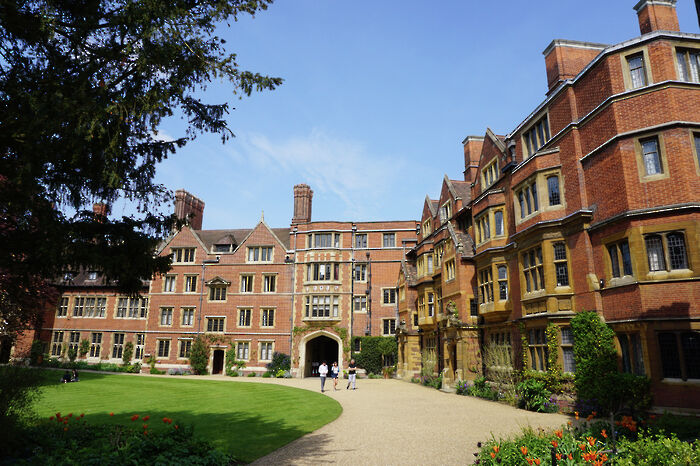The behaviour of the Crescents makes me afraid to admit I’m a Cambridge student
The University’s ‘pompous’ reputation shames lesser-represented students into silence, argues Elizabeth Haigh
I have come to dread the inevitable question: “Where do you go to university?”. In a working-class area like mine, the word ‘Cambridge’ is always met with the same uncomfortable, identical reaction. The shocked expression; the ensuing eye-roll and awkward laugh; they clam up, or proceed with a derisive comment and a cold attitude. The assumption of wealth and arrogance is plain to see, as their perception of me is defined by this innocuous, two-syllable word. Even family members admit that they are hesitant to bring up the topic of university with colleagues or friends, as they, too, feel themselves to be tainted by association.
We do not have to look far to understand why many from further afield react in this way. Just this weekend, a student at an event hosted the Crescents, the now-disbanded Trinity Hall drinking society, was filmed joking about “inclusivity” and said “I swim like someone who’s never had the money to go swimming”. About two weeks ago, an incident of elitist graffiti at Anglia Ruskin University was reported – the graffitist claimed Cambridge students were “superior” over those at Anglia Ruskin.
It is unsurprising that the University is still seen as the place for the children of the elite
Despite the University’s best claims to access and diversity efforts, a large portion of the student body continues to come from a particularly privileged background. While most of these students appreciate their position, the actions of a minority give Cambridge a reputation for elitism and perceived superiority. This creates a particularly fraught relationship between many less privileged students and their place at this university.
More privileged students taint their peers due to the anger and scorn they receive, alienating students from their communities and bringing them into the fold of an institution which does not necessarily seem to represent them. With incidents like these holding significant places in the international perception of Cambridge, it is unsurprising that our University is still seen as the place for the children of the elite, full of archaic traditions and pompous students.
This misconception, encouraged by actions like those of the Trinity Hall students in the recent video, seeps into the personal lives of many students. In areas where Oxbridge admissions are uncommon, pride in the achievement of studying here is replaced by the fear of being called boastful, lofty, or even snobbish, leaving these students to feel estranged both at university and at home. This complicates not only the relationship of current students to the University, but of prospective students, too.
Before coming to Cambridge, I was not exempt from believing these stereotypes. I prepared myself to be surrounded by people unlike myself due to their coming from wealthier, privately educated backgrounds. Unsurprisingly, I was wrong to assume they would all adhere to the stereotype I had expected. What I was not prepared for, however, was the shift I would feel upon first returning home from Cambridge. It was as if I no longer belonged in my own town, as if I were someone different, all due to damaging misconceptions regarding Cambridge and its students.
After all, despite current appearances blurring this reality, Cambridge is an achievable goal for so many. It is only through recruiting more diversely that the University will change the warped perceptions which undermine its access efforts. Until this happens, students from lesser-represented backgrounds will continue to feel as though they have betrayed their communities by simply daring to aim for the success they deserve.
 News / SU reluctantly registers controversial women’s soc18 December 2025
News / SU reluctantly registers controversial women’s soc18 December 2025 News / CUP announces funding scheme for under-represented academics19 December 2025
News / CUP announces funding scheme for under-represented academics19 December 2025 Features / Should I stay or should I go? Cambridge students and alumni reflect on how their memories stay with them15 December 2025
Features / Should I stay or should I go? Cambridge students and alumni reflect on how their memories stay with them15 December 2025 Fashion / The art of the formal outfit 18 December 2025
Fashion / The art of the formal outfit 18 December 2025 News / Dons warn PM about Vet School closure16 December 2025
News / Dons warn PM about Vet School closure16 December 2025









